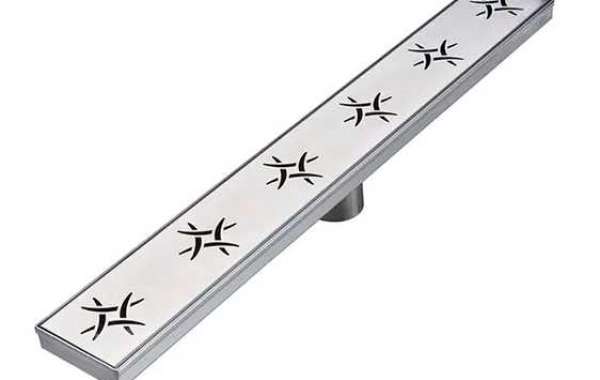Floor waste, those unassuming drain openings in various areas of buildings, are perfect examples of such features. These hidden heroes are essential for preventing water buildup, facilitating sanitation, and preserving the integrity of structures.
1. The Underappreciated Role of Floor Waste:
Floor waste, also known as floor drains or floor gullies, are designed to remove excess water and prevent pooling in indoor and outdoor areas. While they often go unnoticed, their role in maintaining clean and hygienic spaces is paramount.
2. Preventing Water Accumulation:
In areas prone to water accumulation, such as bathrooms, kitchens, basements, and outdoor spaces, floor waste acts as a safety feature. It helps prevent slip and fall accidents by rapidly draining away excess water.
3. Hygiene and Sanitation:
Floor waste plays a critical role in maintaining hygiene and sanitation. In commercial kitchens, for example, they facilitate the disposal of food waste and water, preventing the buildup of potentially harmful substances.
4. Indoor and Outdoor Applications:
Floor waste is used in various settings, including:
Bathrooms: Floor drains in bathrooms prevent water pooling after showers or during cleaning.
Kitchens: In commercial kitchens, floor waste is essential for managing food waste, spilled liquids, and cleaning water.
Basements: Basements are susceptible to water seepage, making floor waste necessary to prevent flooding.
Outdoor Areas: In outdoor spaces, floor drains help manage rainwater runoff and prevent flooding during heavy rain.
5. Types of Floor Waste:
Several types of floor waste are available, each designed for specific applications:
Square Grates: These floor wastes have square or rectangular grates and are commonly used in bathrooms and kitchens.
Round Grates: Round floor wastes are often used in showers, bathrooms, and outdoor areas.
Slot Grates: Slot grates provide a sleek and modern appearance, making them suitable for contemporary designs in both indoor and outdoor spaces.
6. Maintenance and Cleaning:
To ensure the effectiveness of floor waste, regular maintenance and cleaning are essential. Here are some tips:
Regular Cleaning: Remove debris and buildup from the grate to prevent clogs.
Check for Damage: Inspect the floor waste for any cracks or damage that may affect its functionality.
Professional Inspection: In commercial settings, consider professional inspections to ensure compliance with health and safety regulations.
Pest Control: In outdoor spaces, floor drains can become breeding grounds for pests if not adequately maintained.
7. Role in Water Management:
Floor waste also plays a vital role in water management. In outdoor settings, they help prevent flooding by directing rainwater away from structures. This is particularly crucial in areas prone to heavy rainfall or flash floods.
8. Flood Prevention:
In basements and lower levels of buildings, floor waste is an essential element of flood prevention. By draining away excess water, it reduces the risk of property damage and mold growth.
9. Compliance with Building Codes:
Floor waste is often required to meet building codes and regulations, especially in commercial and public spaces. Compliance ensures the safety and hygiene of building occupants.
10. Aesthetic Considerations:
In addition to functionality, floor waste is increasingly being designed with aesthetics in mind. Decorative grates and finishes allow them to blend seamlessly with interior and exterior design themes.
11. Sustainability and Environmental Considerations:
Efforts are being made to design eco-friendly floor waste systems that efficiently manage water while minimizing environmental impact. These systems often incorporate features like water recycling and filtration.
12. The Future of Floor Waste:
As technology and design innovations continue to advance, floor waste is expected to become even more efficient and environmentally friendly. Integration with smart building systems and sustainable water management solutions is likely to become more prevalent.
In conclusion, floor waste factory may be a hidden hero in the world of building design and maintenance, but its significance cannot be understated. These unassuming drain openings play a vital role in preventing water buildup, facilitating sanitation, and preserving the integrity of structures. Whether in bathrooms, kitchens, basements, or outdoor areas, floor waste ensures that spaces remain clean, safe, and hygienic. As technology and sustainability considerations continue to evolve, the role of floor waste in creating clean and hygienic spaces is set to become even more critical in the future.










